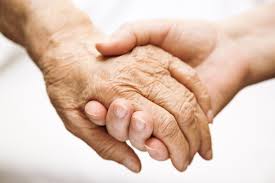What’s
the latest COVID scoop in our community? I spoke to two medical experts in the
know. Jonathan (aka Shaya) Lerner, the Assistant Vice President of Advanced
Practice Providers for LifeBridge Health, is also a volunteer paramedic for
Hatzalah of Baltimore and the chair of its Quality Assurance Committee. Dr. Avi
Rosenberg is a practicing renal and pediatric pathologist and cell biologist at
Johns Hopkins Hospital.
He has collaborated on a COVID-related research enterprise to look at
antibodies in the hard-hit frum
communities (they number nearly 7,000 samples to date!).
Interview with Jonathan Lerner
Margie
Pensak: Does Hatzalah transport Corona patients?
Jonathan
Lerner:
Absolutely, if there is any suspicion that a patient needs hospitalization or
high-level care. Not every Corona
patient gets transported. If someone meets the criteria that identifies them as
stable to stay home, we do our best to keep them at home.
MP:
Which hospital transport options are there?
JL: The majority of time,
we transport Corona
patients to Sinai, but it depends. There are some pediatric cases in which we
would defer to patient preference and take to Johns Hopkins, but for the most
part, Sinai is the number one hospital we take people to.
MP:
Do the hospitals all have the same protocol?
JL: Not necessarily,
but to a certain extent they do because everybody has to wear the same
high-level personal protective equipment (PPE)
and masks. Where they place the patient may differ with the level of care. A Corona patient may be
admitted to the ICU in Sinai but at Hopkins
be deemed stable for their Coronavirus unit.
MP:
What do you think is the best hospital for Corona patients?
JL: I don’t know that
there is a best hospital for Corona,
but there are certain types of patients that Sinai cannot take care of, for
example, if they need a specific machine called Extracorporeal Membrane
Oxygenation (ECMO). This is essentially a mini-bypass machine that pumps and
oxygenates a patient’s blood outside the body, allowing the heart and lungs to
rest. The University
of Maryland and Johns
Hopkins have this machine; Sinai doesn’t. Any Corona patient that was transported to Sinai
and needs the ECMO unit would be transferred to one of those hospitals. In
terms of run-of-the-mill, standard Coronavirus, I don’t believe there is one
best hospital.
MP:
Which meds are being used in which hospitals?
JL: I don’t think
anyone is using Hydroxychloroquine anymore. They are definitely using
Remdesivir and COVID plasma, and steroids, if needed. There is less of a push
to put patients directly on ventilators now and an increased use of high-flow
nasal oxygen. We also do more proning now. Patients on ventilators normally lay
exclusively on their backs. We will actually flip the patients onto their
bellies since the lungs are larger in the back; this allows their lungs to
expand. We flip them back and forth.
Interview
with Dr. Avi Rosenberg
MP:
Where can one go to get tested for Corona?
Dr.
Avi Rosenberg: There
are many different options, ranging from rapid tests at places such as Medstar
Health Urgent Care–Towson, and various drive-through options operated by
hospital, academic institutions and local government (i.e., the state’s MVA
Vehicle Emissions Inspection Program (VEIP) locations, Johns Hopkins, etc.).
Every hospital has its own internal pipeline to do testing. There is a spectrum
of turnaround times, with up to 10
to 14 days for some of the larger commercial labs.
Additionally,
we established a relationship with the ResourcePath lab in Sterling, Virginia,
which is able to do saliva-based testing as well as nasal swab, allowing people
to collect their own samples. Together with Bikur Cholim, we arranged a
drop-box. Samples are picked up three times weekly and sent to Virginia for testing.
This testing option can be accessed through instructions at
COVID.BaltimoreJewishLife.com.
MP:
Do you administer the rapid COVID test?
DAR: No, I do not. The
rapid COVID test refers to a very particular testing platform that currently
has somewhat limited offerings in our region, especially in the outpatient
setting and even more so if asymptomatic. The testing we have been offering
through ResourcePath is a PCR test
and results more rapidly than most of the other local options, which has made
it a desirable option, but it is not formally a rapid test. Rapid tests tend to
have a 15- to 60-minute turnaround, and those instruments are much harder to
procure at this time; we do not have one available to the community in Baltimore.
MP:
With things opening up somewhat, can our community relax
a bit in terms of social distancing and wearing masks?
DAR: Baltimore – and
the frum community in particular –
has had a very particular protection from Coronavirus. As a relative newcomer
to Baltimore,
I’ve observed the strong local rabbinic and communal leadership. I strongly
believe this strong leadership is reflected in the sincerity and
conscientiousness with which the COVID mitigation strategies are adhered to by
members of the Jewish Baltimore community. The fact that we have been protected
to this point – to the level that we have been protected – is a product of
maintaining face coverings, social distancing, and avoiding sick contacts.
I
think now is the time – more than ever – to keep that going, especially as kids
return from camps, as we are about to embark on an attempt at a school season
and, following that, the Yomim Tovim. Now is actually an opportunity to
reinvigorate the importance of face mask wearing and social distancing and not
the time to get lazy about it.







